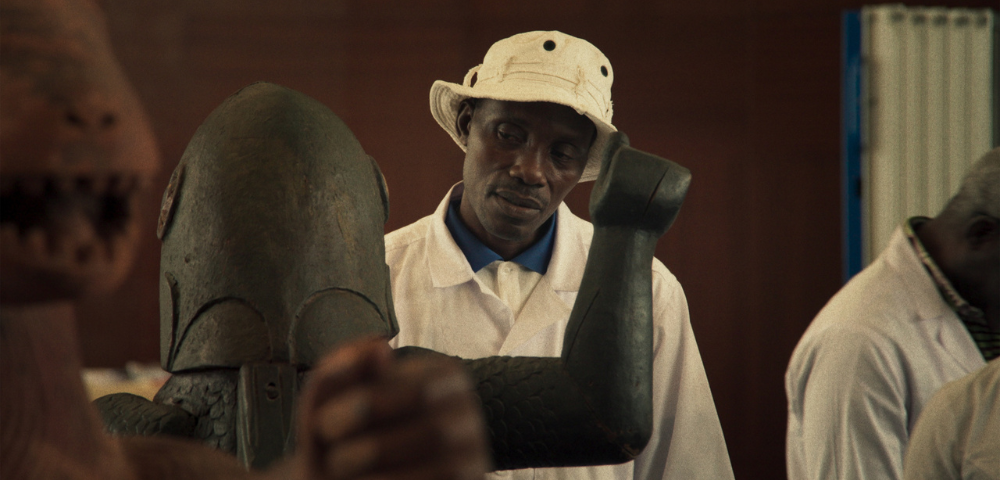
‘Dahomey’: An Artfully Constructed Postcolonial Documentary

How many important cultural artefacts did Europeans steal during colonisation? Globally, it’s a number that’s impossible to quantify. But in the case of the French’s colonisation of the Kingdom of Dahomey, now modern-day Benin, the number is at least 7,000 items.
In 2021, the French government returned 26 of these artefacts to Benin, and it’s their journey home and the conversation surrounding it that is the focus of Dahomey, a short but stunning documentary from Mati Diop that investigates the lingering effects of colonialism on identity in a deeply considered, sharply political manner.
It’s clear early on that Dahomey is not ascribing to a standard documentary style. A key creative choice of the film is that it literally gives a voice to one of the artefacts, a statue of Dahomey’s King Ghézo. The statue’s powerful thoughts about its status as a stolen artefact are written by Haitian novelist Makenzy Orcel and presented with ethereal visuals, and elucidate the struggles of colonised people coming to terms with their identity.
With a careful eye, Diop and her crew carefully observe the long and arduous process of moving these artefacts back to Benin with a filmic quality, and later the widespread discourse around the artefacts. Dahomey rarely explicitly tells you how to feel – there are no talking heads interviews to speak of – but it nonetheless communicates a very clear viewpoint about colonialism and identity while feeling.

Dahomey explores colonialism’s continued impacts
The most enlightening stretch of the film comes during a conversation between young Beninese students at the University of Abomey-Calavi. Here, a huge variety of viewpoints are presented about the return of these 26 artefacts from France.
In an open forum, these students debate about whether the small number of artefacts is really good enough to begin restoring the damage done to the area by colonialism. One student even points out the fact that they’re speaking French to even have this discussion, showing just how widespread the influence of colonialism has gone.
Dahomey plainly expresses that history should never be sugarcoated, and that we still have a long way to go before the wrongs of colonialism are put right. By framing the conversation at the heart of the film through a personified stolen artefact, returning home with not even 1% of the of stolen artefacts, the film raises important questions about repatriation and reparations for the crimes of colonialism; not just in Benin or Africa, but across the world.
★★★★
Dahomey is in cinemas now.









